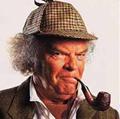题目内容
My father had a small business, employing(雇用)fifteen people at any given time. We sold all kinds of milk products. I had worked for my father since I was young, did all seven kids in my family.
One day, we had a new employee, Debbie, who wanted to work in the store for the summer. She had done this type of work before, but planned to give it her all.
On her first day, Debbie made just about every mistake in the . She charged the wrong prices for items, she gave the wrong bag of food to the wrong customer, and she and broke a half gallon of milk. The torture(折磨)of watching her fighting her way was too much for me. I went into my father’s office and said, “Please go out there and put her out of her misery(苦恼).” I him to walk right into the store and let her go away from our store.
Since my father’s office was situated within view of the sales counter, he had surely what I was talking about. He sat, , for a moment. Then he got up from his desk and walked over to Debbie, who was standing behind the counter.
“Debbie,” he said, as he put his hand on her shoulder. “I have been watching you all day, and I saw how you Mrs. Forbush.”
Debbie’s face turned red and tears began to in her eyes as she tried hard to remember Mrs. Forbush from the many women she had given the wrong change to or drop off her milk onto the floor.
My father continued, “I’ve never seen Mrs. Forbush be so to any one of my employees before. You really knew how to deal with her. I am sure that she is going to want you to her every time she comes in. Keep up the good work.”
In return for being a wise and kind employer, my father got a trusty and hardworking employee for fifteen years … and a friend for life.
One day, we had a new employee, Debbie, who wanted to work in the store for the summer. She had done this type of work before, but planned to give it her all.
On her first day, Debbie made just about every mistake in the . She charged the wrong prices for items, she gave the wrong bag of food to the wrong customer, and she and broke a half gallon of milk. The torture(折磨)of watching her fighting her way was too much for me. I went into my father’s office and said, “Please go out there and put her out of her misery(苦恼).” I him to walk right into the store and let her go away from our store.
Since my father’s office was situated within view of the sales counter, he had surely what I was talking about. He sat, , for a moment. Then he got up from his desk and walked over to Debbie, who was standing behind the counter.
“Debbie,” he said, as he put his hand on her shoulder. “I have been watching you all day, and I saw how you Mrs. Forbush.”
Debbie’s face turned red and tears began to in her eyes as she tried hard to remember Mrs. Forbush from the many women she had given the wrong change to or drop off her milk onto the floor.
My father continued, “I’ve never seen Mrs. Forbush be so to any one of my employees before. You really knew how to deal with her. I am sure that she is going to want you to her every time she comes in. Keep up the good work.”
In return for being a wise and kind employer, my father got a trusty and hardworking employee for fifteen years … and a friend for life.
| 小题1: |
|
| 小题2: |
|
| 小题3: |
|
| 小题4: |
|
| 小题5: |
|
| 小题6: |
|
| 小题7: |
|
| 小题8: |
|
| 小题9: |
|
| 小题10: |
|
| 小题11: |
|
| 小题12: |
|
小题1:C
小题2:C
小题3:B
小题4:A
小题5:C
小题6:D
小题7:D
小题8:A
小题9:C
小题10:B
小题11:D
小题12:A
试题分析:短文大意:这篇短文主要讲述了我的父亲在面对一位工作做得不太好的雇员,不是给予批评和解雇,而是努力挖掘这个人的优点,来鼓励他把工作做得更好,从而不但得到了一批忠心的雇员,还得到了一批终生的朋友。
小题1:考查语境理解及连词。Unless除非,如果不;neither两者都不,既不……也不;as随着,由于,和……一样的;nor 也不,也没有。结合语境可知此处指的是,就像我家的所有七个孩子一样。故选C。
小题2:考查语境理解及副词。already 已经;yet然而,还;never 从来不;ever曾经,永远。结合语境可知此处指的是,他以前从来没有做过这种工作。故选C。
小题3:考查语境理解及名词。Vision视力,美景;book书籍,帐薄,名册;spirit精神;position位置。结合语境可知此处指的是,他几乎犯了所有的错误。故选B。
小题4:考查语境理解及动词。Dropped落下,空投;lost 丢失,迷路;touched接触,触摸;missed想念,错过。联系后半句描述,可知他把一加仑牛奶掉在地上,摔坏了一半。故选A。
小题5:考查语境理解及动词。Encouraged鼓舞,激励;forced促使,推动,强迫;expected盼望,希望;influenced影响。结合语境可知此处指的是,我希望我的父亲走进商店,让黛比离开我们的商店。故选C。
小题6:考查语境理解及动词。Followed跟随,追随;seen看见;guessed猜测;heard听见。联系前一句描述,可知此处指的是,父亲肯定听见我说的话了。故选D。
小题7:考查语境理解及形容词。Careful仔细的,细心的;upset心烦的,混乱的;angry愤怒的;thoughtful深思的,体贴的。结合语境可知此处指的是,父亲若有所思的做了一会儿。故选D。
小题8:考查语境理解及副词。Gently轻轻地,温柔地;seriously严肃地,认真地;lightly轻轻的,容易的;directly直接地。结合语境可知此处指的是,父亲轻轻地把手放在他的肩上。故选A。
小题9:考查语境理解及动词。Accepted接受;agreed同意;treated对待;considered考虑。结合语境可知此处指的是,我看见了你如何对待布希夫人。故选C。
小题10:考查语境理解及动词。Run奔跑;well涌出;appear 出现,登场;rise升起。结合语境可知此处指的是,他的眼泪开始涌出。故选B。
小题11:考查语境理解及形容词。Funny有趣的;hopeless绝望的;rude粗鲁的;polite礼貌的。结合语境可知此处指的是,我以前从来没有见过布希夫人如此礼貌地对待我的任何一位雇员。故选D。
小题12:考查语境理解及动词短语。wait on服侍,焦急地等待;look after照顾;stand for代表,象征;depend on依靠,依赖。结合语境可知此处指的是,我相信她打算每次都让你来服侍她。故选A。

练习册系列答案
相关题目
